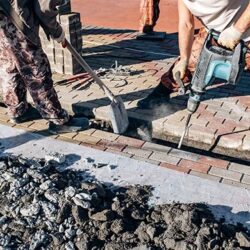If your home is located on the Central Coast, you enjoy beautiful surroundings, but also deal with the realities of humidity, seasonal temperature shifts, and sometimes high demand for hot water. That means your hot water system needs to be robust and efficient. If you are considering Hot Water System Replacement, here’s what to keep in mind: what your options are, what costs to expect, and how to choose a system that fits both your needs and your budget.
Recognising the Signs It’s Time to Replace
Some signals you should watch for:
- Older system (10–15 years or more) showing general wear.
- Hot water is running out quickly, taking longer to recover.
- Discoloured or rusty hot water.
- Leaks at the base, moisture around pipes or joints.
- Noticeable increase in energy or utility bills without a corresponding increase in usage.
- Strange or loud noises: popping, rumbling noise often from mineral buildup inside the tank.
What Kinds of Systems Are Available
On the Central Coast, these are commonly considered:
- Electric storage tanks: simple, lower upfront cost, decent reliability.
- Gas systems: both storage and on‑demand; good performance, but consider gas supply & safety.
- Continuous flow (tankless): compact, no tank, water on demand; efficiency is good, but higher upfront cost.
- Heat pumps: efficient, quieter, lower running costs over time, well-suited to a coastal climate.
- Solar or solar‑boosted systems: using natural sunlight helps reduce energy bills, though weather patterns affect performance.
Cost Components for Hot Water System Replacement
These are things that will affect the total cost:
- Size/capacity needed based on the number of users, bathrooms.
- Type of energy/fuel: electric, gas, solar, heat pump. Each has different purchase and running costs.
- Installation complexity: whether pipes/electrical/gas lines need changes; whether venting or spatial modifications are needed.
- Disposal of the old unit.
- Warranty and maintenance expectations.
- Local council or regulatory costs, inspections, or permits.
Tips to Save Money & Improve Value
- Get several quotes from local suppliers/installers. Compare warranties, efficiency, and after‑sales.
- Look for systems with high energy efficiency to reduce running costs over time.
- Check eligibility for rebates or incentives for energy‑efficient systems in your area.
- Aim to replace an old system before it fails catastrophically; emergency replacements cost more.
- Proper sizing: too big wastes money; too small means discomfort and strain on the system.
Final Thoughts
Doing a smart Hot Water System Replacement on the Central Coast means balancing upfront cost, system type, running cost, and your climate demands. If you pay attention to signs early, rust, noises, leaks, and ageing, you can plan the replacement in a way that gives better reliability, lower bills, and peace of mind for years ahead.




